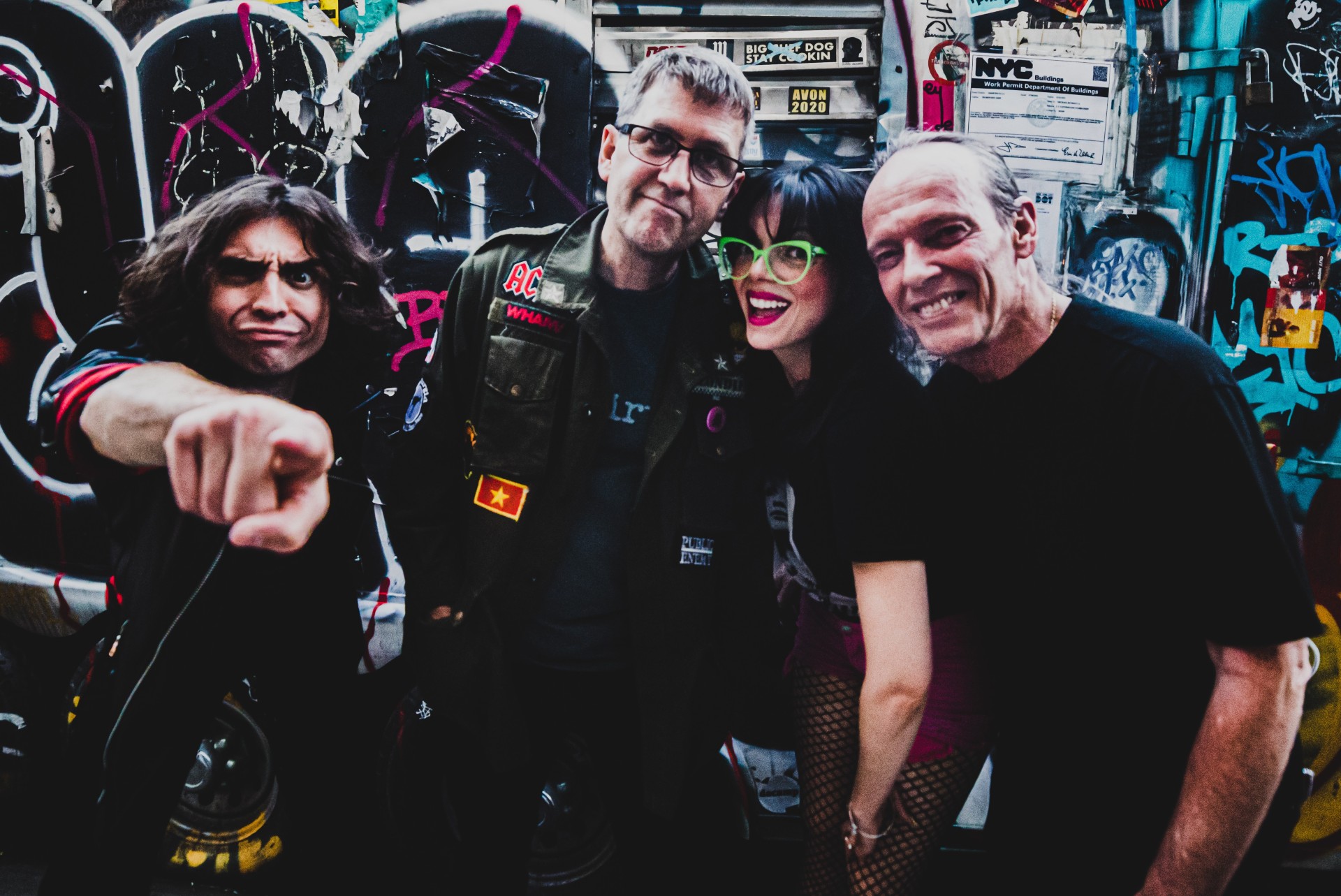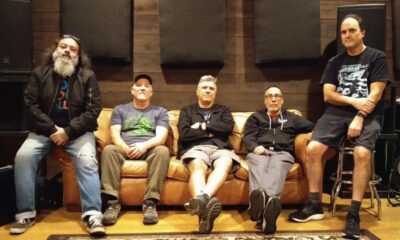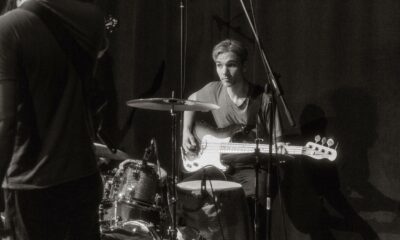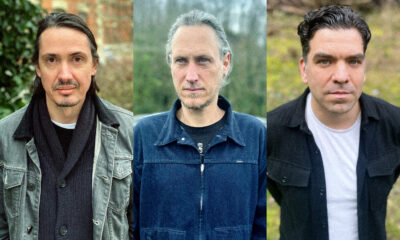Music
JOHN DENNIS is Playing with “Board Game Money” on His New Music Video [Premiere]
We’re doling out some big-time “Board Game Money” today, courtesy of singer-songwriter John Dennis and the brand new music video supporting his just-released Rainfeather Records album, Mortal Flames.

We’re doling out some big-time “Board Game Money” today, courtesy of singer-songwriter John Dennis and his brand new music video. The song can be found on Dennis’ just-released Rainfeather Records album Mortal Flames, which you can purchase now via Apple Music. The album is intensely personal, a musical examination of important universal themes such as the search for meaning as a child, the disillusionment of adolescence, the highs and lows of your first love, the process of learning to accept the past, healing, and eventual death. It’s essentially a concept record that follows the chronology of life, starting at birth and ending at death.
The Nashville, Tennessee singer-songwriter has found his creative niche with Mortal Flames as it highlights how far his songwriting and storytelling skills have come since the release of his debut album Eternity’s Tree in 2014. Dennis has successfully developed his own unique take on Americana that pays homage to some of the most legendary names in folk music such as Bob Dylan, Paul Simon, Tom Petty, and James Taylor. Mortal Flames is Dennis’ third full-length, a record that shows a maturity well beyond the years of an artist still in his 20s.
“Board Game Money” is one of the most noteworthy songs found on Mortal Flames, a song that represents childhood on the album. Like all of the songs on the record, “Board Game Money” was motivated by Dennis’ own experiences and the idea for the song struck him at a time when he was barely getting by financially, while ironically playing many late-night games of Monopoly. To accomplish the goals of the record, Dennis wanted there to be a song that’s reminiscent of the feeling of being young and all of that imagination and potential that we think has no limits. If you listen to the words, “Board Game Money” uses a lot of mythical and fairy tale imagery which helps emphasize the childlike point of view of the song.
It’s been a long road to where he is now for someone as young as Dennis. Never one to shy away from his personal journey, Dennis has experienced his share of hardships, such as the unexpected death of his girlfriend in 2010, his near-fatal battle with alcoholism and the subsequent journey he had to travel towards recovery. We recently spoke at length to Dennis about the music video for “Board Game Money,” how the song connects to the concept of the video, and Dennis’ unique sense of humour that he has maintained through all of the highs and lows of his own life.
Get ready to cash in with the premiere of John Dennis’ new music video for “Board Game Money:”
I was trying to form my own interpretation of your new music video for “Board Game Money” but I wasn’t having much luck. How would you characterize the video with regards to its concept?
John Dennis: “Ultimately, the video was an experiment in compelling images, psychedelia, and sensory overload in reference to the various layers of the song and not necessarily taken to have a linear, clear ’plot.’ For example, the cat is just a cat named Penny that wouldn’t stop jumping on the table. Further, I wanted to allow Irakli and Anana (at production company Duende Vision) the freedom to explore this project artistically and not be afraid to leave things open to interpretation. I think it’s important that a video serves the song, but also that the video has the freedom to itself be approached as a piece of art. That being said, we did go in with a plan and ideas that served as mini-narratives and compelling images that did tell a larger story or at least serve the story and layer that exists in the lyrics.
My own interpretation of it is this: I think that much of this album’s content is reflective of the imaginative nature of this song and childhood in general. That is represented in the main table scene by all that is happening behind me on the wall (all mythic symbols) as I look down on the board game toys on the table. The candles are a reference to the Mortal Flames concept itself. Of the miniature figurines, it’s worth noting that you see Annie Oakley (mentioned in the lyrics) and also the stop motion George Washington narrative with 1776 on the dominoes representative of the birth of America, and in turn modern capitalism, in subtle reference to the political undertones of the song.
You also have the shots on the train and in the ’jail cell,’ both Monopoly references. Finally, you have the narrative of the tin man, cast off as garbage, but taken as a friend, and then ultimately abandoned as I take on that identity for myself; that identity, to me, is one of both childlike imagination, and also perhaps a commentary on the way in which we all, within the context of a consumerist society, take on the identity of that which we consume, and, in turn, can ourselves be consumed and cast aside as mere cogs in a greater capitalist machine. It’s not intended to be an anti-capitalist statement by any means, but the song and the song merely speak to the sensory overload and weight so many of us find ourselves struggling with in the modern American capitalist landscape. I am a struggling musician after all. That’s my take on it at least.”
Try to count all of the candles in the cover art for Dennis’ new album Mortal Flames:
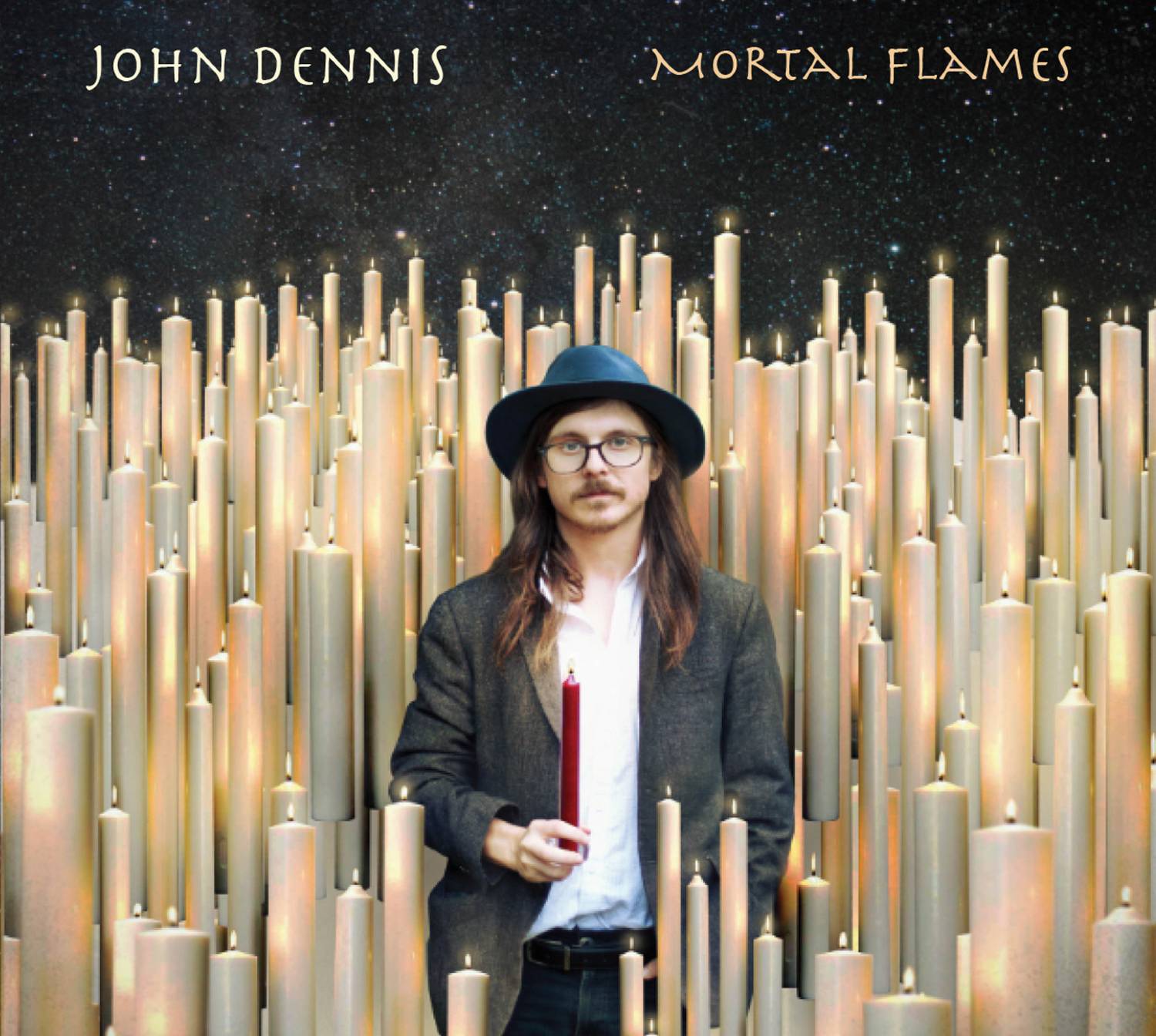
There are a lot of crazy, unexpected moments in this music video. How would you regard your own experience in shooting the video? Was it enjoyable, arduous, a bit of both?
Dennis: “I would say it was a largely enjoyable process, and I wouldn’t say the shooting was particularly intensive for my part; although, Irakli and Anana worked passionately to make this the best project it could be in both the filming and editing process. We got all the filming parts knocked out over the course of two days between our two houses. The stop motion (Anana’s idea) was a bit of a headache, but I love it. I will admit I was more of an amazed participant in their artistic vision. I came in with my own ideas, and they met them and then far exceeded them, all the while working with an excitement for the art form that was really inspiring for me to get to be a part of. I’ll admit I was not so versed in the visual medium and what was actually possible through editing and such, so much of the ’craziness’ came from their passion and expertise for psychedelia and foreign art films.”
How do you think the song’s meaning or background associates itself with the music video? Would you say that they are connected in that respect?
Dennis: “I spoke some to this in the first answer, but I would say the crux of the song for me is recognizing that it has a couple of layers. In the context of the larger story of Mortal Flames, it represents the innocence and naivety of childhood. It’s a happy song in that regard. It’s laced with fairy tale imagery, possibility, and wonder. On the other hand, there is meant to be a sense of foreboding that speaks to the social commentary that exists in the song, the feeling of being so ill-equipped for the financial realities of adulthood in a consumerist culture that the idea of spending all your ’board game money’ is spoken with an air of sarcasm and apathy. I think I best described this layer when I said this song came from an ironic pairing of feeling like I was barely staying afloat financially and several late-night Monopoly games.
In my personal opinion, the music video weaves in and out of those two interpretations in a compelling fashion and we tried to deliberately keep the subject of the song as the reference point for the video throughout the process, while also giving Anana and Irakli the freedom to make their own artistic expression. That was important to me.”
Check out the music video for “Walls Fall Down” off of Dennis’ sophomore album Second Wind:
For someone who has experienced some difficult times in their life, you seem like the type of person with a pretty vibrant sense of humour. Would you say that these past experiences have been important in shaping your current approach to life and to your music?
Dennis: “Absolutely. I feel like I’ve always had a healthy sense of humour. However, to a certain degree, I think in the wake of great loss and near-death, both of which I have experience with, I’ve grown more to appreciate the lighter sides of life, the joys and blessings when they come. Also, when I’m able to look at life through that perspective, it’s much easier to have a sense of humour about things, and not take things as seriously having known what truly serious, tragic problems look like. I’m human though, I still take things to seriously and get weighed down about the little things, but in my heart of hearts, I know that laughter, love, and joyful things aren’t something to be taken for granted; and when I’m able to choose that perspective of gratitude, I feel a real sense of peace.”
Your new record Mortal Flames was just released last week; it’s a very personal and reflective record that touches on many of your past experiences which is at times rather sombre. What motivated the rather melancholy tone that this record has taken on?
Dennis: “I mean, it might be kind of a strange answer, but I don’t see the album as an overly ’sad’ record. I see it as a triumphant one, and one which is about joy being born out of that sorrow, and meaning being found in love and connection that is born in a universe that, through an existential lens, can be seen as cold, indifferent, and ’meaningless.’ I think that is just miraculous, and that, too, is my experience. I have never shied away from my melancholy or my scars, because, for me, it is where I am able to find healing, and also, connection to those that might have experienced something like I have.
I hope that people can hear my songs and know that, whatever they’ve been through or are carrying, they aren’t alone in it, and no matter what, they are worthy of the same love, compassion, and healing that life has afforded me. This record is a celebration of that. It’s sombre at times because I was (and am) sombre at times. It brings to light some of my gritty, uglier truths, but they’re the truth, and I’ve always tried to stay honest to that.
I find my deepest peace when I can get some of those things out in songs and name them because it’s the best way I know how, and they stop having so much subtle power over me. I feel like I learn a lot about myself in songwriting, and sometimes listen back and think, ’Wow, so that’s what was hiding in here. That’s what I’ve been carrying,’ and somehow it just feels a little bit lighter, and I hope it does the same for those listening. This may have been a really pretentious answer (laughs), but alas, it’s the truth.”
-

 Music4 days ago
Music4 days agoTake That (w/ Olly Murs) Kick Off Four-Night Leeds Stint with Hit-Laden Spectacular [Photos]
-

 Alternative/Rock5 days ago
Alternative/Rock5 days agoThe V13 Fix #010 w/ High on Fire, NOFX, My Dying Bride and more
-

 Hardcore/Punk2 weeks ago
Hardcore/Punk2 weeks agoHastings Beat Punks Kid Kapichi Vent Their Frustrations at Leeds Beckett University [Photos]
-

 Culture2 weeks ago
Culture2 weeks agoCirque Du Soleil OVO Takes Leeds Fans on a Unique, Unforgettable Journey [Photos]
-

 Alternative/Rock2 weeks ago
Alternative/Rock2 weeks agoA Rejuvenated Dream State are ‘Still Dreaming’ as They Bounce Into Manchester YES [Photos]
-

 Features4 days ago
Features4 days agoTour Diary: Gen & The Degenerates Party Their Way Across America
-

 Culture7 days ago
Culture7 days agoDan Carter & George Miller Chat Foodinati Live, Heavy Metal Charities and Pre-Gig Meals
-

 Music6 days ago
Music6 days agoReclusive Producer Stumbleine Premieres Beat-Driven New Single “Cinderhaze”



